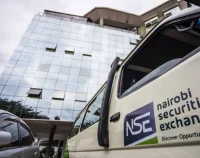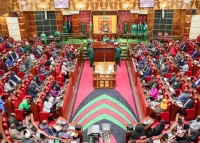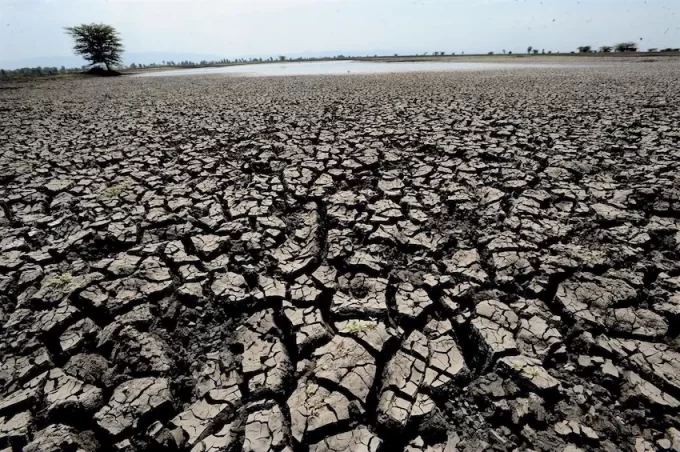By Josephine Wawira
As the world commemorates the Micro, Small and Medium-sized Enterprises (MSME) Day under the theme, “Resilience and Rebuilding: MSMEs for Sustainable Development”; how can MSMEs contribute to an economy that is greener and fairer?
Despite the robust voice of climate change deniers, extensive literature has been written on the subject, lots of research work has been undertaken, global conferences held and international agreements signed all to get everyone – governments, businesses, civil society, and citizens – to play their part.
Admittedly, much of the ongoing debate has often seemed out of touch with the realities of the MSMEs as well as ordinary citizens and communities. Governments and large businesses do have a bigger role to play in tackling the menace because much of the effort requires strong policy guidelines, action by national legislative bodies, and an adequate financial wâr chest. But just as the role of government and large businesses is critical, so are the individual and corporate efforts of everyone else.
Climate change is akin to a fever. It is not the problem in itself. Rather, it is a warning that there is an infection in some part of the body that needs to be dealt with. It is not the climate change itself that we should be worrying about. Instead, we should worry more about our unsustainable activities that have made the planet sįck. It is what we call reducing our carbon footprint. Therefore, in case you are wondering what you and your small business can do to help win this wâr, here it goes.
Travel: Do you have employees who are private car owners? Do they drive to work?
You can significantly cut greenhouse gas emissions by organizing a staff bus or encouraging the use of ride-hailing services at subsidized rates. How often are your employees travelling out of town for a meeting that lasts only 30 minutes long? A lot of meetings attended by your staff may not require their physical presence. Check if the meeting can be held via video link and advice accordingly.
A lot of air travel can be eliminated if businesses employed more technology instead of travel for work engagements. It may also help to know that worldwide, the transport sector generates more greenhouse gases than any other sector. Fly only when your physical presence is of absolute necessity.
Efficiency in manufacturing: Apart from transport, manufacturing is another big emitter of greenhouse gas. Manufacturers should do as much as possible to limit the use of fossil fuels in the manufacturing process. Except where it is impossible, renewable energy should be used. Also important is ensuring that your product’s design reduces waste by allowing reuse, recycling, or input into other manufacturing processes.
Energy: Installing solar panels as an alternative source of energy has proven to be one of the most sustainable best practices for any business. It is a clean, and renewable source that may cost you a little money to install but the long-term benefits and cost savings are incredible. Generally, businesses should invest in solar and wind energy to reduce reliance on the national grid which is often unreliable. Whenever water levels are low, power producers are forced to use fossil fuels to generate electricity and individual business owners may be forced to use diesel-powered generators as a backup in case of blackouts.
Similarly, those in the building and construction industry should go for energy-efficient buildings by using power generated from renewable sources and using building materials that are either recycled or whose extraction does not cause too much emission of greenhouse gases.
Agriculture: Many of us love our meat as part of our daily diet. Did you know that the number of fossil fuels used to produce one kilogram of beef from grain-fed cattle can be 20 times more expensive than the same amount of plant-based protein? It makes sense, therefore, to reduce the consumption of meat by eating more plant-based meals. Those in commercial agriculture should decide to produce more plant-based foods in place of animal-based ones. We must also create more awareness among citizens, to understand why it makes sense to consume more plants than animals.
Supply chains: As a business, you may have suppliers of goods and services in different sectors. Having embraced sustainable and inclusive business practices, you have a responsibility to encourage your suppliers to come on board, too. Being their business lifeline, you need to look at it as a circle and not a straight line. If the whole circle of your business is sustainable, then you have reason to be proud. You are becoming future-proof.
Reduce waste: Don’t print unless you have to. Replace disposable plastics with more sustainable and reusable alternatives.
Incorporate this message in your communication strategies and help spread the sustainability vibe.
Finally, involve your employees: Your employees are an important link in the efforts to reduce your business’ carbon footprint. The decisions you make should involve them and they, too, should make their little efforts even from their household levels. We need every hand on the deck. Every action makes a difference.
These actions can be taken independent of any legislative or regulatory requirement. Do them not just because it is the right thing to do for humanity and the planet, but because you have fused sustainability in your business DNA. Thankfully, they also make business sense and lead to future-proof models.
The author is a Circular Economy Communications Expert at Sustainable Inclusive Business, under the Kenya Private Sector Alliance.
Read: African CEOs Score Poorly On Climate Change Strategies
>>> Uhuru Elected Chair Of African Union Committee On Climate Change


![Rose Kimotho was honoured with a Lifetime Achievement award by the Communications Authority (CA) at the 2019 Kuza Awards. [Photo/ 3 Stones TV]](https://businesstoday.co.ke/wp-content/uploads/2022/06/Madam-Kimotho-768x866-1-150x150.png)










Leave a comment